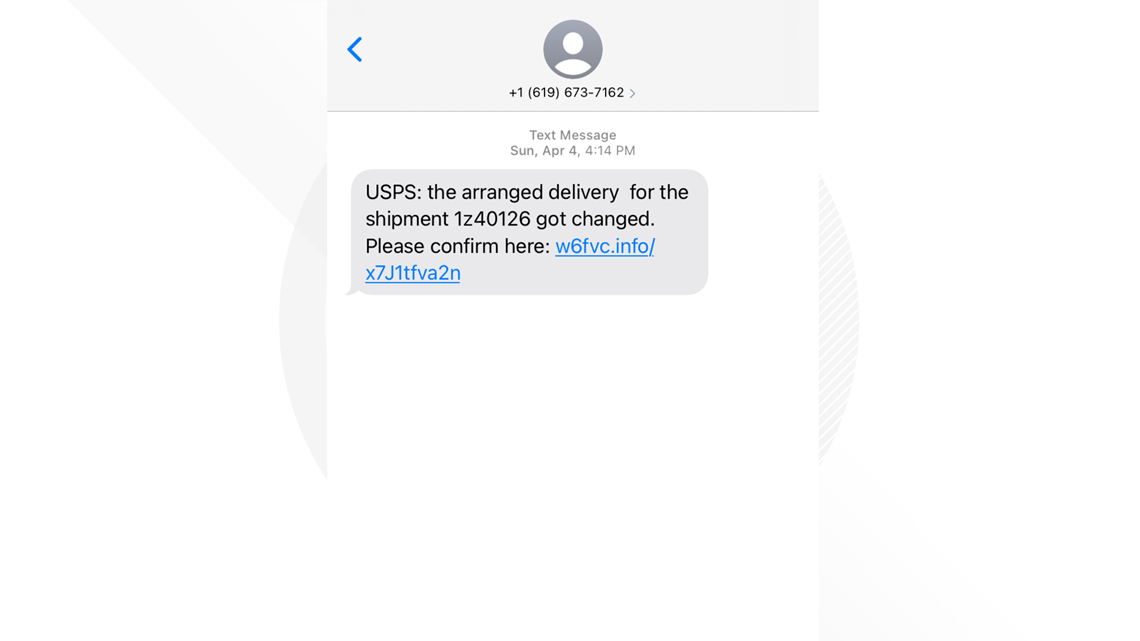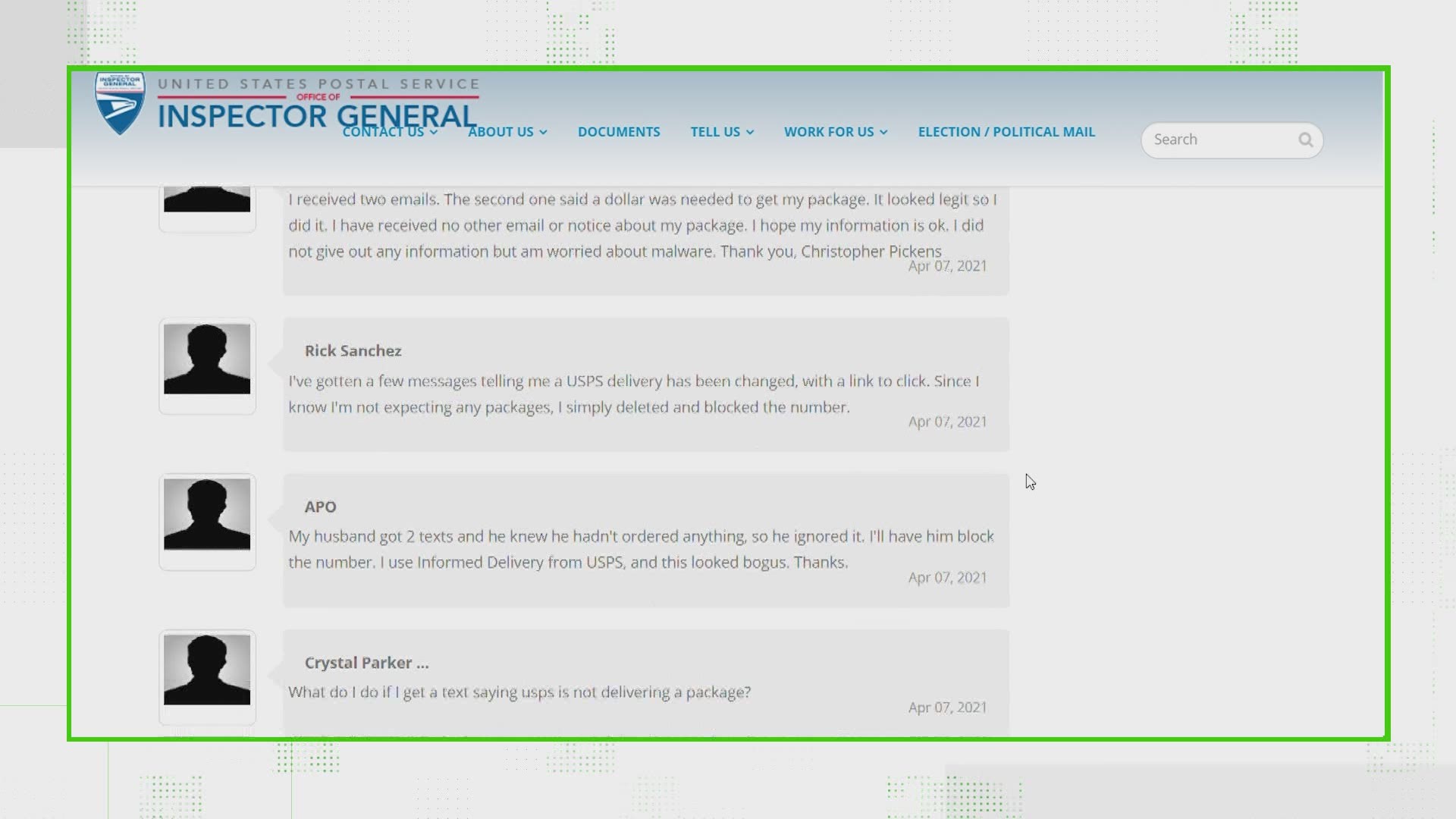Online shopping and orders have become more common than ever in the past year.
With that comes updates from your mail carrier.
Hundreds of people wrote to the postal service online asking about getting unusual text messages from USPS.
THE QUESTION
Are delivery text updates really from the U.S. Postal Service?
THE SOURCES
THE ANSWER
No, these messages aren't from the postal service and it's likely a smishing attempt. The postal service does offer text alerts about deliveries, but you have to sign up for that service directly through the postal service.
WHAT WE FOUND
In January, the Office of the Inspector General for the U.S. Postal Service posted a blog story sharing a warning about smishing - a fraudulent text message pretending to be from a reputable source.
Smishing, according to online cyber security service Norton, is similar to the more known phishing scams in that they try to get users to share personal information. But with smishing, scammers try to do so over texts and SMS messages, and it's becoming an "emerging and growing threat in the world of online security," according to Norton.
The postal service said third parties are falsely claiming to be USPS in order to get your personal information.


The Better Business Bureau released a story in September of 2020 talking about fake package delivery scams that were starting to pop up around the country.
The Better Business Bureau's Monica Horton said this used to only be prevalent during the holiday season but now it's happening all the time.
"The crooks will cast a wide net, and they pay attention to what's going on," Horton said. "They know now that more and more people are shopping online out of necessity."
If you do receive a text like this and you are waiting on a package, do not click the link.
The best thing to do is go directly to the website that is delivering your item and enter your tracking number to check on its status.
"The urgency of the message can trick you into making that hasty decision to clicking on that link without thinking about it," Horton said. "We are in the habit of tracking them all the way to our doorstep. You need to resist the urge to click on that link."

